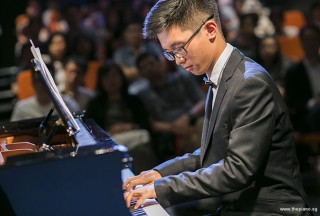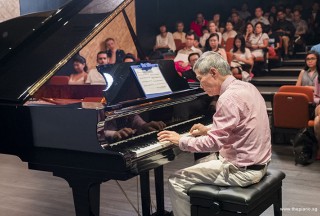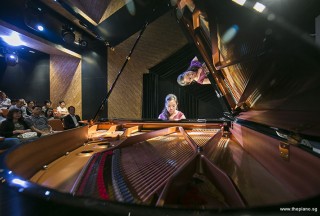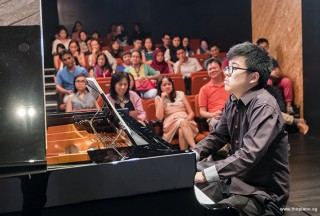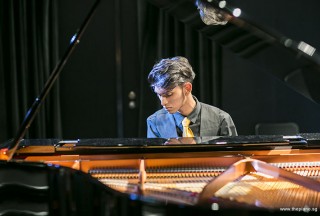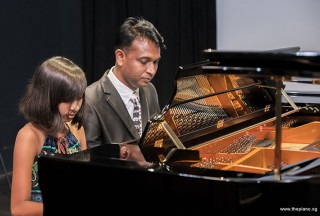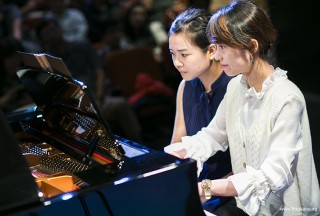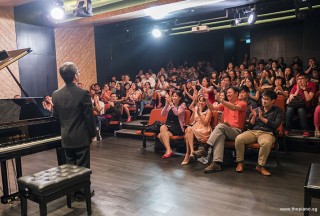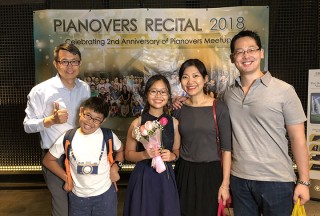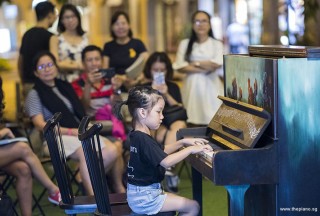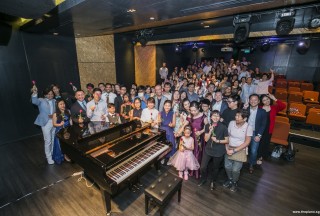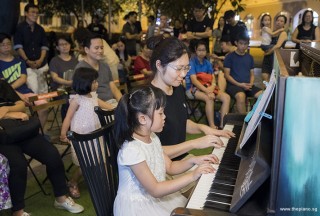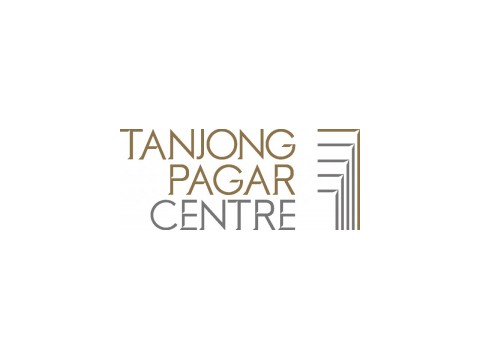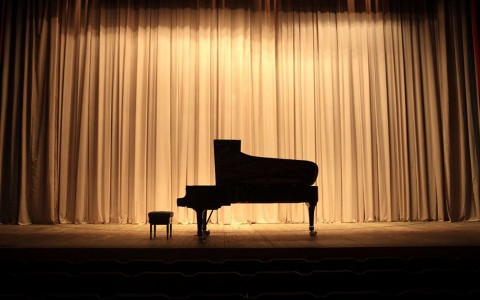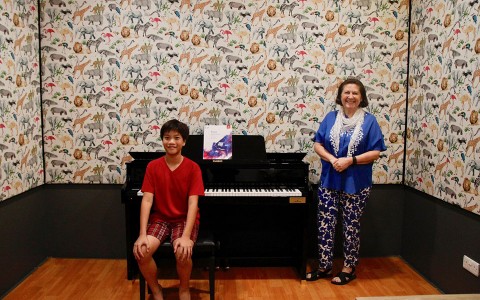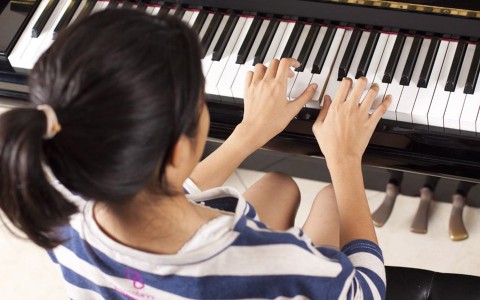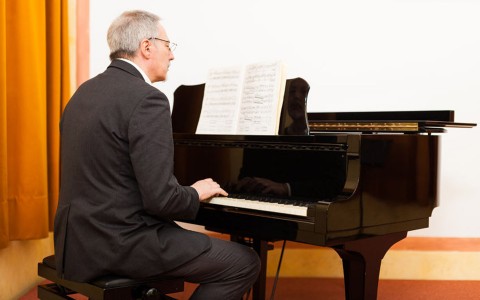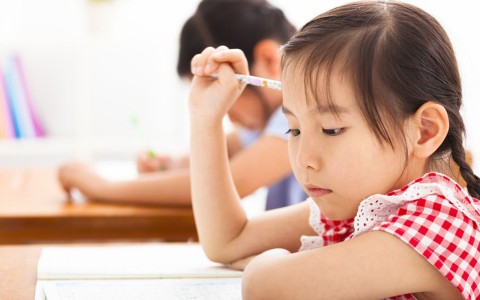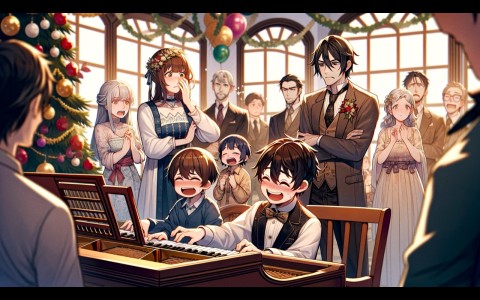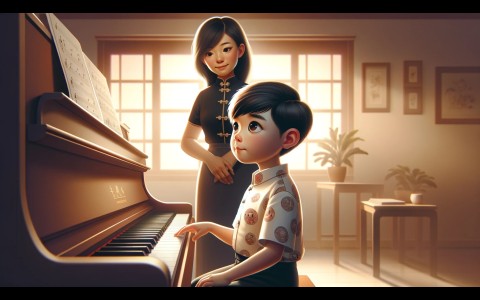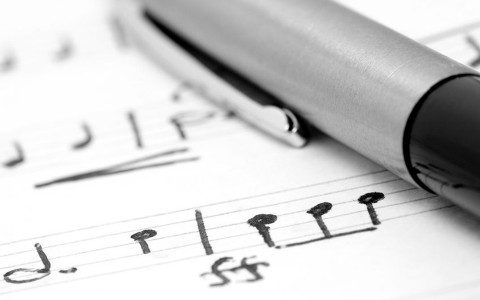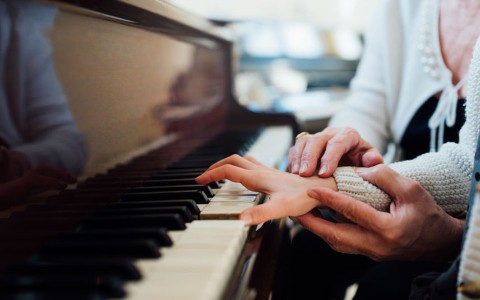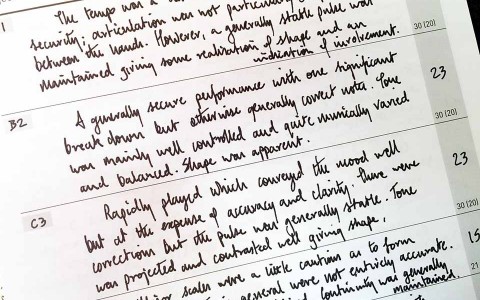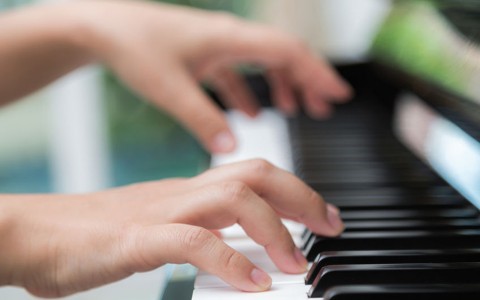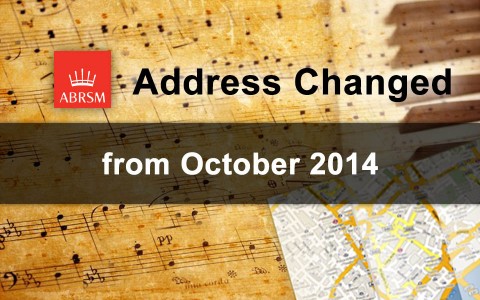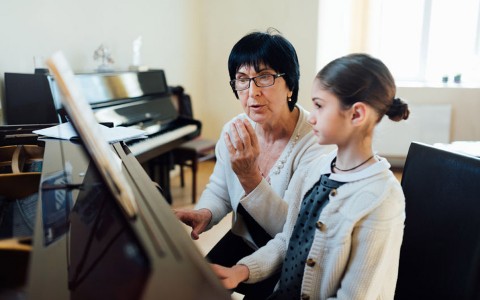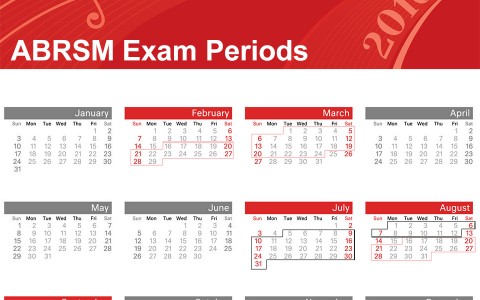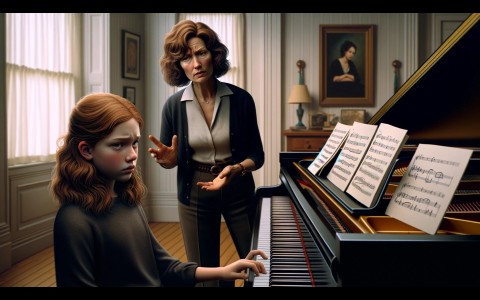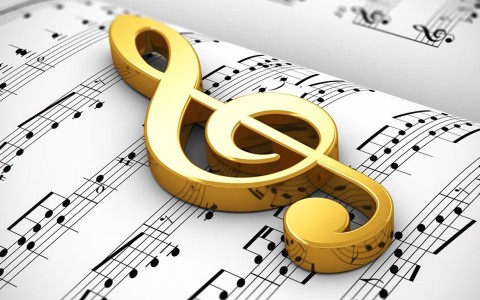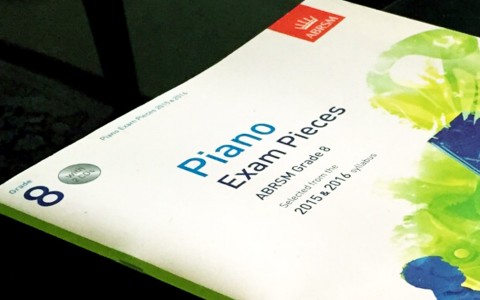Parents who have sent their children to recitals know the feeling. The bright lights, people in performance attire milling around, the tense atmosphere, the anticipation, the anxiety. The children may or may not know what to expect, but the toll the recital takes on the parents is unmistakable. They try to soothe the children’s anxiety, however, it is clear that both the parents and the children are equally nervous.
However, piano recitals are actually good opportunities for piano students to bring their skills to the next level, and they are an important platform for boosting their confidence. In fact, the benefits of piano recitals and public performances for pianists are priceless, period. Here are the top 20 reasons why performing at recitals is important.
Recitals Encourage Students’ Growth
1. Time Management and Discipline
With the start of the school year in January, the big wave of new habits and skills arrives. As the days progress, routines get set, life is settled. By February, any changes would have come to a halt. Amid the multitude of changes at school, signing up for a piano recital puts some order into the changing timetable. Having a deadline to work towards allows the students to rise above the chaos and into a structured, disciplined process. When students know that they are preparing for a recital, they develop motivation and discipline. They learn about time management and allocate time for schoolwork and piano practice. They take time out to polish up their skills and practise the performance piece.
2. Focus and Self-Motivation
As students settle into a disciplined structure, they become more focused and attentive. They pay more attention to their piano teachers. During piano lessons and practice times, they try their best to follow instructions. They make it a point to give their best. When teachers see the level of motivation in their students, they are motivated to ensuring the students receive the best from them, too. Most teachers do not conduct recitals. And a common observation is: Students leave the piano untouched after a lesson as they go about their daily routine. Then, just before the next lesson, they practise hurriedly, just to show they have practised!
3. Conquering of Difficulties
Participation in a recital motivates students to perfect a piece. During the course of learning the piano, it is inevitable that there will be some sections of some pieces that are challenging. Many times, students tend to gloss over these difficult sections. However, if they are preparing for a recital, they will put in the effort to perfect the piece.
Recitals Improve Skills and Build Confidence
4. Picking Up New Skills
When students participate in recitals, they learn new skills. When they perform in front of an audience, they put in more effort so as to win the approval of the audience. With the audience’s applause and positive feedback, they will become better and bring themselves to the next level. Students will be motivated to pick up more difficult pieces.
5. Building Confidence
One great hurdle that plagues pianists who perform in public is nervousness. When students are nervous, it impedes their concentration and negatively affects their performance. The effects may be even more pronounced in young performers. These may cause the students to suffer from stage fright. Left unchecked, stage fright may go as far as to cause long-term psychological problems. Unfortunately, not enough is being done to reduce stress among performers. Stress has been known to cause problems, even in adult performers, who may stop performing for extended periods of time. Although good piano teachers make it an effort to conduct recitals for their students, they do not pay enough attention to the emotional aspects of the performances. Students have to learn how to deal with stress and nervousness. When children are taught to overcome stress at a young age, they gain confidence and allow themselves to be more successful performers.
6. Recitals Give Recognition
When students are given the opportunities to take part in recitals, they are given the chance to feel a sense of achievement. Students put in many hours of hard work in front of the piano. Performing in a recital is a way of rewarding them and recognising their efforts.
7. Public Speaking Skills
Recitals go beyond allowing students to play the piano. They also allow children to speak in front of a “live” audience. Public speaking is a lifelong skill that brings benefits to them as they progress into adulthood. When children are allowed to speak and perform in a controlled environment, they gain not just confidence but also experience. Exposing children to such experiences early in their lives will make public speaking and relating to others around them easier for them as they mature into adults.
Vulnerability and Good Techniques
8. Vulnerability
When students perform, they train themselves to be vulnerable. As they play on stage, the audience will not only listen but also evaluate the students. Regardless of how the students perform, the audience will not do anything negative. On the contrary, they will applause and encourage the performers. This makes the recital the perfect place in which to be vulnerable. Being vulnerable benefits people not only in performances; it can bring benefits in other aspects of their lives, for example, working with others and finding their inner self. Practising vulnerability is important in personal development.
9. Learning Good Techniques Early
Oftentimes, it takes immersing oneself into the real environment to learn good techniques. Although this is for true for both adults and children, the benefits are more pronounced in children. Many people don’t master these techniques until they are much older, if they ever have a chance to perform in recitals. Young performers who get early exposure into public performances put themselves a step ahead of others and learn good techniques early.
10. Recovery From Mistakes
Piano learners have an important skill to learn: recovery from mistakes. It is very important to be able to immediately take recovery actions once mistakes are made. In layman terms, this is known as “damage control”. When mistakes are made, the last thing that pianists should do is to shake their heads or otherwise show their frustration. Not only are they exhibiting an inappropriate response, they are also showing the audience that mistakes have been committed. Rather, they should take appropriate measures that mitigate the consequences and resume playing as soon as possible. Achieving this takes practice and piano lessons are a good place for students to learn mistake recovery methods. Joining a recital, when a “live” audience is present, allows the students to put such skills into practice and solidify the learnings.
Building Preparation Routines
11. Keeping A Clear Mind
Playing during a recital can be stressful. This stress cannot be reproduced during a rehearsal; it will only appear during a recital, when the audience is present. Because of this, it is important for the students to rest the brain. Waking up fresh with a fully-rested body and a clear mind will help the students give a good performance. It is important to understand that a recital environment is totally different from a piano studio. Unlike in a studio, the students are in an unfamiliar environment, with the added distraction of having an audience watching them. The stress arising from such an environment cannot be overstated. Since performing with stress cannot be rehearsed, the only way to prepare for a recital will be to keep a clear mind. Students need to have a clutter-free mind in which to store the knowledge of the composition to be played. This will ensure that the students will be able to override all distractions and play to the best of their abilities. Note that these observations and advice apply only to students, not experienced performers.
12. Familiarity and Ability to Perform
Frequent exposure to recitals and going through the preparation process each time a recital comes up inculcates a sense of familiarity into the students. This does not only increase their confidence but also enables them to be able to perform any piece under any circumstances at any time.
Family Bonding
13. Parental Support
Recitals give parents of students an opportunity to deepen the bonds with their children. By showing their children that they are interested in their children’s piano activities, parents do not just help them increase their confidence but also show them that they support what their children are doing. It is important to set aside time in their busy schedule and attend the recital. This is a good signal that the family supports the children’s music education.
14. Involvement Of Extended Family
Recitals give the extended family a reason to get together with the student. Get the relatives to attend together with the parents. Having grandparents, aunties, uncles and cousins attend the recital is a good opportunity for students to share their passion for music, their hard work and passion.
15. Genuine Praise
Participating in recitals give parents the chance to express their innermost love and praises for their children. Recitals offer a platform for the parents to bond with the children, complete with family photos, videos and big smiles. When parents clap in support of their children, they show that they recognise the efforts the children put in. Seeing how the parents support them makes them feel loved and more motivated to do even more and even better.
16. Priceless Sight Of Children On Stage
Live performances provide a rare opportunity for parents to see their children on stage. While they have more than their fair share of watching children rehearse at home, such practice is always done amidst the backdrop of housework and daily distractions. Oftentimes, piano music is drowned out by the noise from electrical appliances, chatter and even pets. Watching children perform at recitals means listening to nothing but beautiful melodies that emanate from the piano on stage, made by none other than their children! Parents can truly focus on their children’s playing. The experience is priceless.
Watch and Learn
17. Be Amazed At Their Progress
Engaging in “live” performances give both the children and their parents a chance to reflect upon how far along the piano learning journey they have come. Learning to play the piano may look like a slow process, however, witnessing other young children play will instantly remind children about their process and spur them to work harder!
18. The Way Forward
Recitals allow the children and their parents to have an idea of the path forward in the learning journey. There is nothing more motivating than to see fellow learners performing. Students get to observe playing techniques and hear new compositions. More importantly, they will experience the sense of pride that comes from playing before a recital audience.
19. Knowing Fellow Learners
Participating at a recital accords children a valuable chance to get to know fellow children who are also learning the piano. As adults, we do not exist alone in this world; we have a community at the workplace and in our personal lives. It is the same for students; they belong to a community of fellow learners. It is important that the children feel part of the learning community that is happily learning together and striving towards excellence. This will make them motivated and develop a deeper interest in music and lessons.
20. Live Music
Adults like us know how it like to attend a “live” event, like a concert or a musical. The experience is different from watching the same event on television or on the Internet. Unlike adults, children do not get to attend many “live” events. Attending a recital offers children a very different experience from listening to the teacher or fellow students play in a studio. If the children themselves were to perform at a recital, that would be even better. The experience they get could not be further from performing in a studio!
Pianovers Meetup
In Singapore, since July 2016, through ThePiano.SG's weekly Pianovers Meetup at Urban Park @ URA Centre, we have been holding successful recitals every week, and have provided a platform for ordinary piano lovers, known as Pianovers, to have the opportunity to know like-minded piano enthusiasts, share their knowledge and experiences, build their own performing profiles, and showcase their talents. This outdoor event also doubles as an activity hub where people connect and bond and reinforce their relationship with one another.
Closely followed by 10,000 piano lovers on our Facebook Page, we have conducted 148 Pianovers Meetup to date, showcased a total of 3,355 public performances, comprising 1,940 unique pieces played by 516 Pianovers, and clocking a whopping total performance time of 478,374 seconds.
In fact, we also held two Pianovers Recitals celebrating our anniversaries of Pianovers Meetup, which were both full-house events.
As Seen On
Pianovers Talents
Pianovers Talents is all about supporting our fellow aspiring musicians’ progress and advance in their pursuit of musical passion. We celebrate their achievements as they take to the stage and realise their dreams of performing at a recital, as a solo / duet / ensemble, on a grand piano or any instrument (e.g. violin, guzheng, vocals), in a formal recital environment, and gain authentic performance experience!
Whether you're a music teacher or from a music school, parent or musician, your students, children, or even you yourself can boost confidence in public performances, have dress rehearsals for upcoming exams and recitals, and build bigger performing portfolios.
When you participate in Pianovers Talents, not only will you get a high-resolution photograph and a video recording of your performance, you will also be presented with a Certificate of Achievement and your name will be published in Pianovers Talents News. Learn more »

